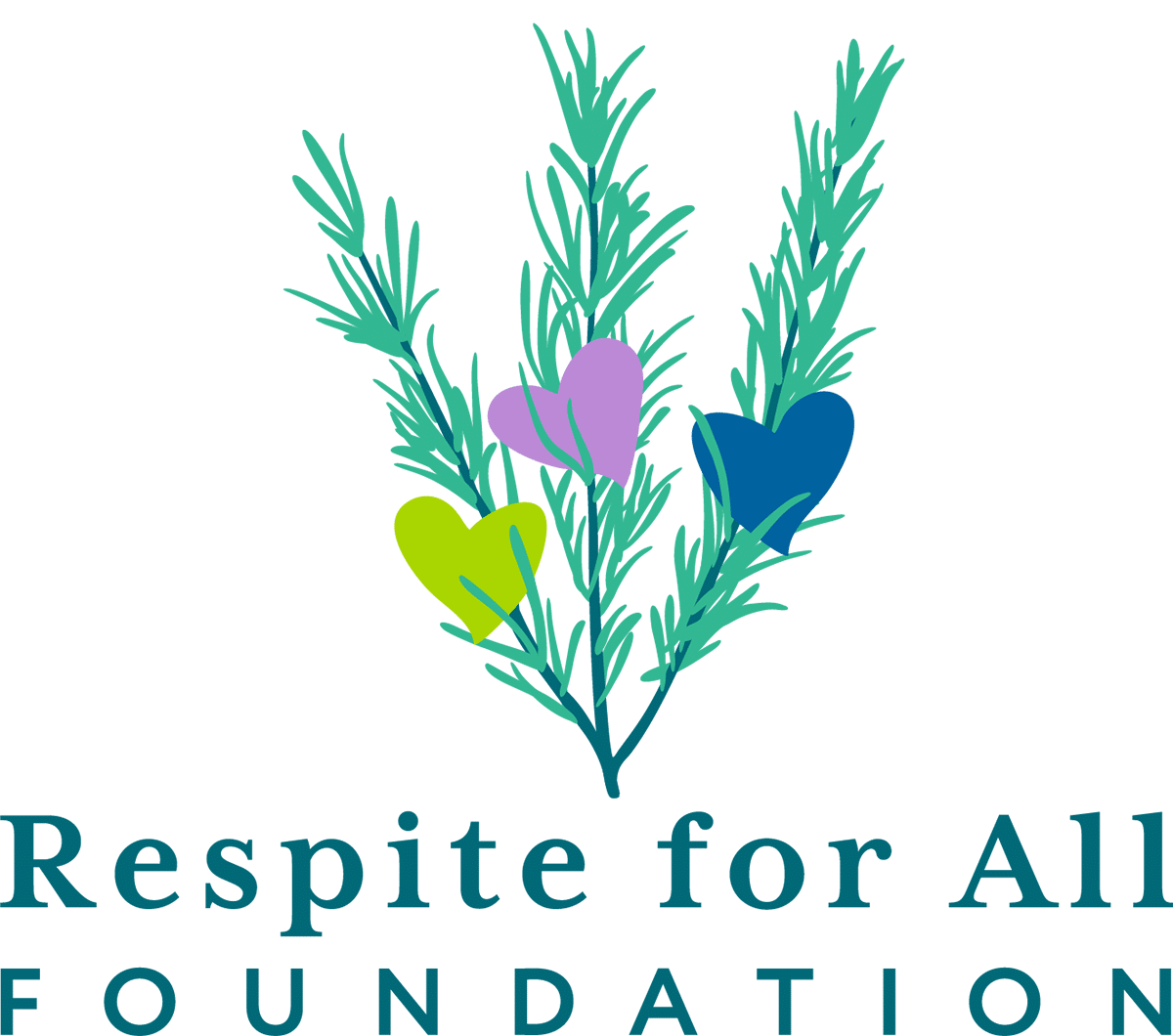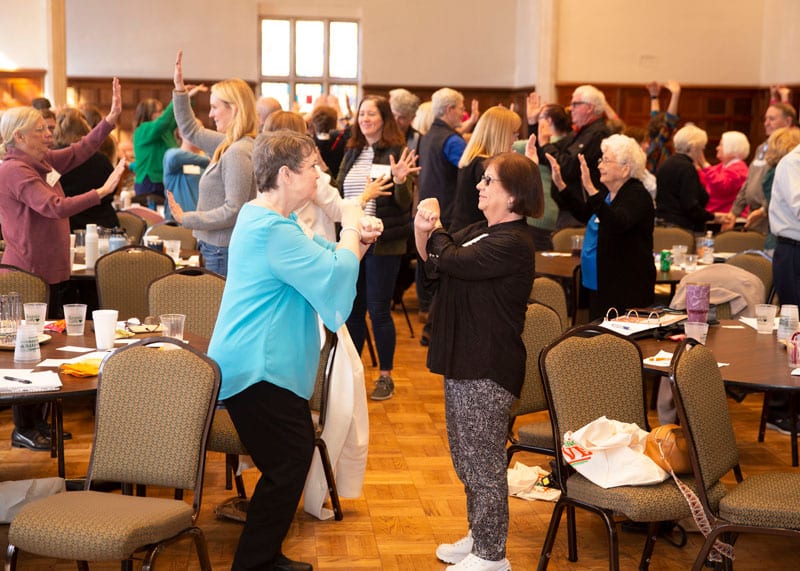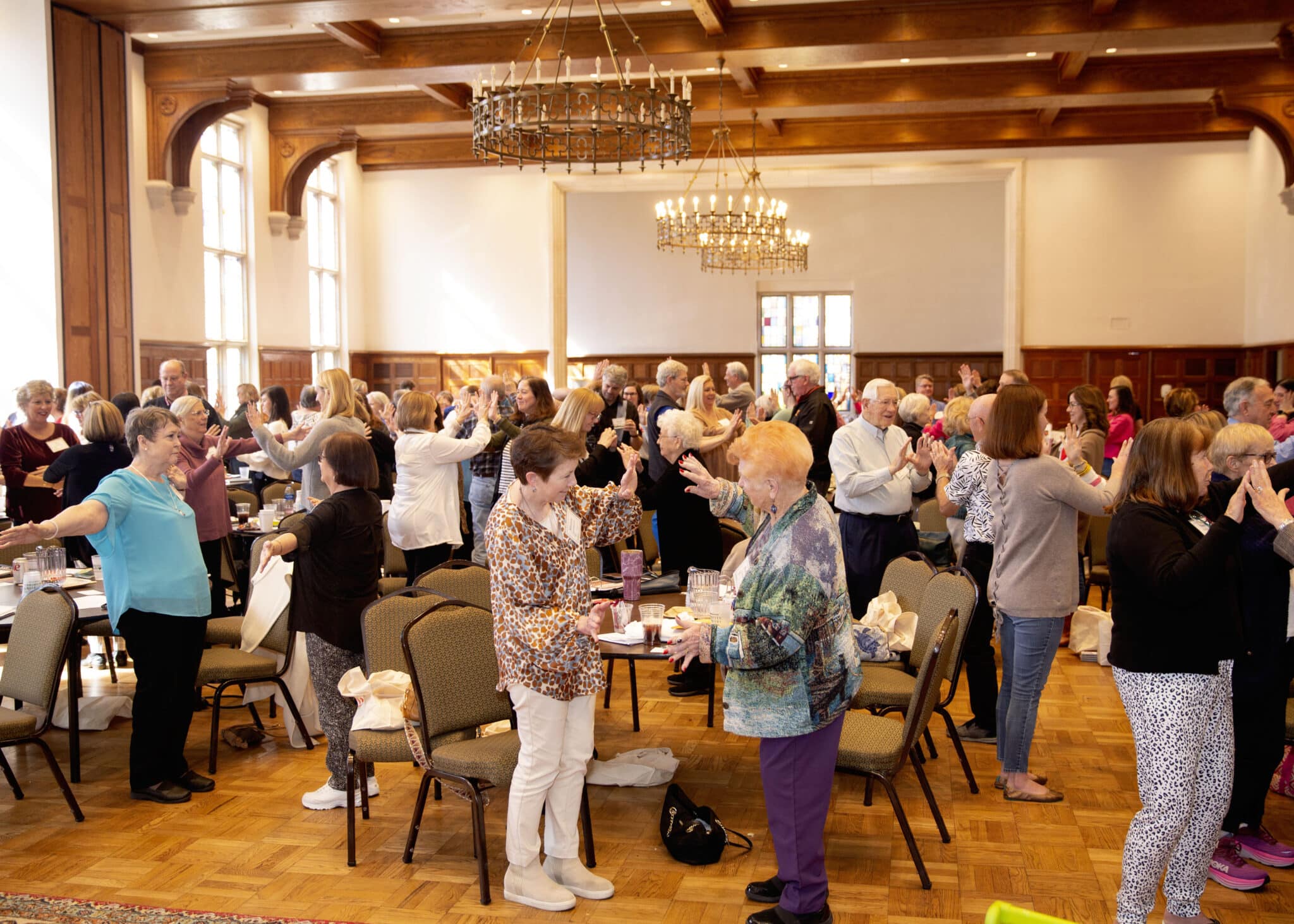Start Respite
Be the Champion for Your Community
The Respite for All Roadmap provides a complete framework for launching a local respite community.
Are you ready to launch a volunteer-based Respite Ministry in your community? We will show you how. The Respite for All Foundation guides churches and other organizations in how to build communities of well-being and connection for our friends living with dementia.
As you make your plans to establish a Respite Ministry in your community, be sure to email June Jernigan, RFA Resource Director, at [email protected] and let us lead you through a checklist for your success.
RFA is on a mission to expand this meaningful response to a growing social need. And we have no doubt that the time is right for a volunteer-based Respite model like ours in your neighborhood.
The Roadmap online training program provides knowledge, insights and best practices that have helped launch and sustain 51 communities and counting. You’ll also get the support of staff as well as a network of respite directors who are here to encourage and guide you along the way.
Why reinvent the wheel when you have the whole program laid out?
- Standard Group Training for New Directors
- Cost-effective Tools to Make Volunteer Communities Sustainable
- Shared Best Practices for Existing and New Volunteer Communities
- Coaching for New Directors
- Education and Support
- Training for RFA Communities
- Marketing Ideas that RFA Communities Can Implement
- Enrollment and Participation Forms that RFA Communities Can Customize
Several key features of the RFA model make it easy to replicate and sustain, including:
- No Overhead – Communities are housed in churches where space is available during the week for no cost.
- Minimal Paid Staff – Churches have armies of volunteers willing to serve if given the vision.
- Social Program – A medical staff is not needed because no medical care or meds are dispensed during the four hours of gathering.
- Daily Tuition – Fees set by local programs greatly offsets costs (suggested $40.00 a day.)
- Insurance – This is typically covered under the umbrella policy of the church because this is a social model.
- A Faith-based Volunteer Model – invites community partners, such as local churches, businesses, and private donors willing to support a response to Alzheimer’s.


